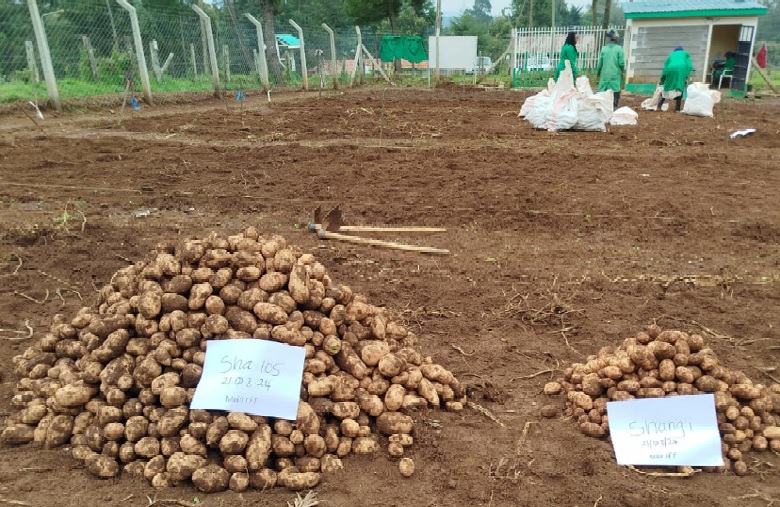Successful demo trial of the late blight resistant biotech potatoes in Molo, Kenya
Successful demo trial of the late blight resistant biotech potatoes in Molo, Kenya.

Once more, the late blight resistant (LBR) biotech potatoes featured complete resistance to the late blight (LB) disease in demonstration plots held in Molo in Nakuru county in Kenya. The trial was conducted at the field station of the Kenya Agricultural and Livestock Organization (KALRO) in collaboration with the International Potato Center (CIP) and the African Agricultural Technology Foundation (AATF).
LB disease is harming potato production every season everywhere in Kenya destroying fields up to 100% unless farmers spray chemicals sometimes up to 10 times per season. The chemicals are expensive, not always available, and threaten farmers’ health and the environment. KALRO and CIP have developed, and tested repeatedly, several biotech potatoes made resistant to LB disease after adding three resistance genes from potato relatives using genetic engineering.
The Molo harvest made last August revealed striking differences between the biotech potatoes and their respective conventional counterparts. These are farmers' preferred varieties: Shangi, Asante, and Tigoni. While the biotech potatoes had marketable yield on average of 59.7 tons per ha, the corresponding conventional varieties had only 5.1 tons per ha due to severe damages caused by late blight. Marketable yield of the biotech potatoes were 12 times higher than that of the conventional varieties.

Farmers and other local potato stakeholders who witnessed the performance of the biotech potatoes were happily surprised by the complete resistance to this disease that farmers have been fighting all their lives. The release of the biotech potatoes represents a game-changer for smallholder farmers who are the vast majority of potato growers in Kenya.



 Print
Print Email
Email




